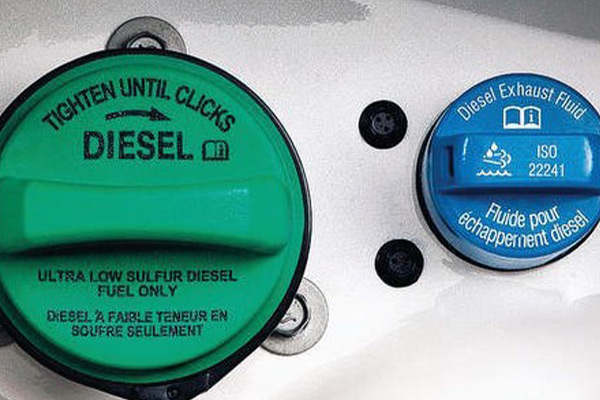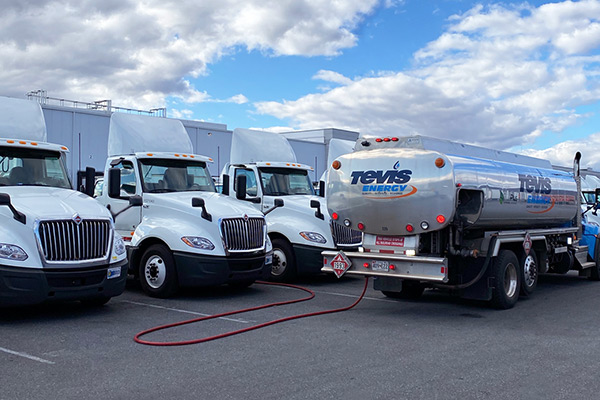Diesel exhaust fluid (DEF) is a crucial component in modern diesel engines, but it can also cause problems if not used and stored properly. In this article, we’ll discuss some common DEF fluid issues and how to avoid them, providing helpful tips for those who rely on this fluid for their fleet or equipment.
Diesel Exhaust Fluid Issues: What You Need To Know

Keep reading to explore some common issues that occur with diesel exhaust fluid.
Diesel Exhaust Fluid Contamination
Diesel exhaust fluid can become contaminated if it comes into contact with certain materials, such as oils, grease, or other chemicals. Once contaminated, DEF can no longer perform its intended function of reducing emissions from diesel engines. Contamination can cause the engine to operate less efficiently, increase maintenance costs, and potentially void the engine warranty.
To avoid contamination, it is essential to store DEF properly. DEF should be stored in its original container, away from other fluids and chemicals. When filling up DEF tanks or adding DEF to equipment, use a designated DEF nozzle or container to prevent cross-contamination. It is also important to keep DEF containers and tanks clean and dry to avoid contamination.
DEF Temperature
DEF freezes at 12°F (-11°C) and can break down if exposed to high temperatures. If DEF is not stored properly, it can cause damage to the equipment and lead to expensive repairs. For example, if DEF freezes, it expands and can damage the storage container or the equipment’s DEF lines. If DEF is exposed to high temperatures, it can cause it to break down and become less effective at reducing emissions.
To avoid temperature-related issues, store DEF in a cool, dry place, away from direct sunlight or other sources of heat. It is also important to ensure that DEF is not exposed to extreme temperatures during transport. If DEF freezes, it can still be used once it has thawed but should not be heated or agitated to speed up the process.
Related Article: 3 Reasons Fleets Should Swap the Gas Station for Mobile Fuel Delivery
Evaporation Of Diesel Exhaust Fluid

DEF can evaporate if left uncovered, especially in high-temperature environments. This can cause a loss in volume, which can lead to running out of DEF unexpectedly. To prevent evaporation, keep DEF containers and tanks tightly sealed when not in use. If you’re storing DEF for an extended period of time, it’s a good idea to check the container periodically to ensure it hasn’t evaporated or leaked.
Related Article: 7 Tips To Reduce Fleet Fuel Expenses
Quality Of Diesel Exhaust Fluid
Not all DEF is created equal, and using poor quality DEF can cause issues such as clogged filters or damaged components in your engine. Poor quality Diesel Exhaust Fluid may also contain impurities that can lead to corrosion or other damage to the engine. It is important to use high-quality DEF to ensure that your equipment runs smoothly and efficiently.
To ensure you’re using high-quality DEF, purchase it from a reputable supplier such as Tevis Energy and check for the API certification mark on the label. The American Petroleum Institute (API) has established a certification program for DEF that ensures it meets industry standards. You should also check the expiration date, as DEF has a shelf life of about two years.
Overfilling
Overfilling DEF tanks can cause problems such as leaks, spills, or even damage to the equipment. Overfilling can also cause DEF to be expelled from the system, leading to a loss of DEF volume and potentially causing the engine to run inefficiently.
To avoid overfilling, use a DEF nozzle or container with an automatic shut-off feature. It is also important to know the capacity of your DEF tank before adding DEF. Most equipment will have a DEF gauge or other indicator to help you avoid overfilling.
Related Article: Safety Tips For On-Site Fuel Storage Tanks
Empty Diesel Exhaust Fluid Tanks

Running out of DEF can cause serious problems for your engine, as it requires DEF to meet emissions standards. Running out of DEF can cause the engine to go into limp mode, which reduces engine power and speed. This can be dangerous if the equipment is being used on the road or in other hazardous conditions.
To avoid running out of DEF, keep track of your DEF levels and refill before they get too low. Some equipment may have a warning light or gauge to indicate when DEF levels are low. It is important to make sure that you have enough DEF on hand to complete your tasks and to avoid the problems that can result from running out of DEF. It is a good idea to establish a regular refilling schedule to ensure that your equipment always has enough DEF. You should also make sure that your DEF supplier is reliable and can deliver DEF when you need it.
Related Article: What Are The Benefits Of Fleet Fuel Delivery For My Business?
Conclusion
In summary, diesel exhaust fluid is an important component for reducing emissions in diesel engines, but it can cause problems if not used and stored properly.
To avoid common DEF issues, it is essential to store DEF in its original container, away from other fluids and chemicals. When filling up DEF tanks or adding DEF to equipment, use a designated DEF nozzle or container to prevent cross-contamination. It is also important to store DEF in a cool, dry place, away from direct sunlight or other sources of heat. Check the expiration date and ensure that you are using high-quality DEF from a reputable supplier. Keep track of your DEF fluid levels and refill before they get too low. By following these helpful tips, you can ensure that your equipment runs smoothly and efficiently while also reducing harmful emissions.
Related Article: The Endless Benefits Of Farm Fuel Delivery
The Importance Of Choosing A Reputable Diesel Exhaust Fluid Supplier
Tevis Energy has been providing reliable fuel delivery services to commercial customers for many years. We understand the importance of proper DEF usage and are committed to helping our customers keep their equipment running smoothly and efficiently.
Our team of experts can help answer any questions or concerns you may have about DEF, and we can provide you with high-quality DEF delivered right to your location. We offer flexible delivery options to fit your schedule and can provide emergency delivery services if needed.
By working with Tevis Energy, you can have peace of mind knowing that your DEF needs are taken care of. We prioritize safety and efficiency in all of our deliveries and always strive to exceed our customers’ expectations. Contact us today to learn more about our commercial fuel delivery services and how we can help you with your DEF needs.
Call Tevis Energy To Learn More About Our DEF Deliveries

Tevis Energy proudly offers commercial fueling services, including DEF deliveries, in our service area of central Maryland and southern Pennsylvania. Our DEF delivery trucks can either deliver to a storage tank or fleet fuel directly to a fleet of trucks. We can also deliver to deliver jugs or drums of DEF to customers.
Our goal is to give you the best DEF prices and delivery service to meet your specific business requirements.
Call Tevis Energy to learn more about one of our many services. You can click here to contact us now or call us at (410) 876-6800 to find out more!
